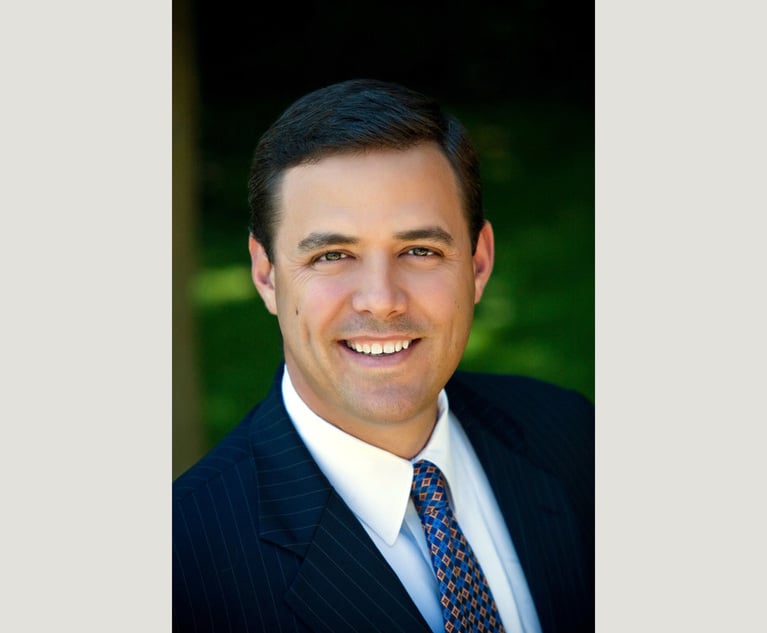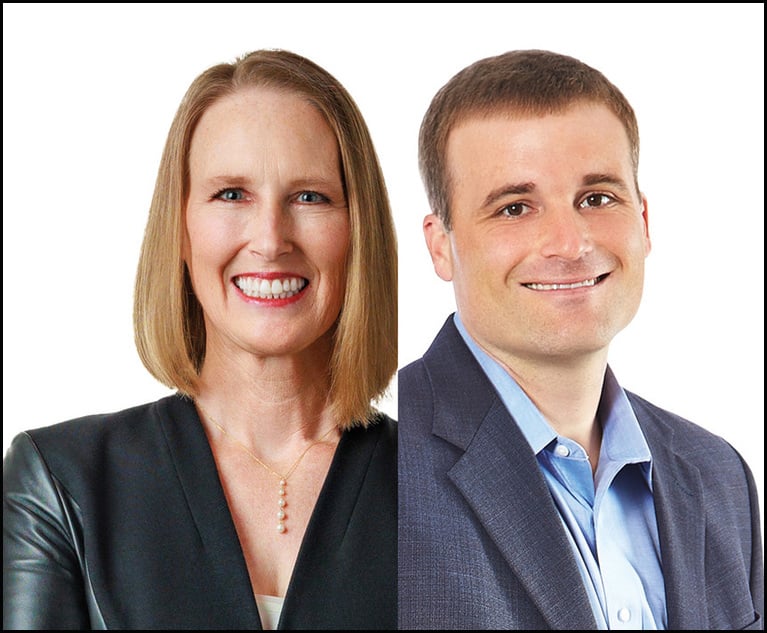US Lawmakers Want Feds to Steer Driverless Car Rules
Congressional Republicans and Democrats in Washington drew battle lines Tuesday over a package of self-driving vehicle bills that would pre-empt state-level regulations, including those in the final stages of development in California.
June 27, 2017 at 04:28 PM
3 minute read
Congressional Republicans and Democrats in Washington drew battle lines Tuesday over a package of self-driving vehicle bills that would pre-empt state-level regulations, including those in the final stages of development in California.
U.S. House Republicans have unveiled 14 draft bills that seek to expand the federal government's role in setting rules for testing, developing and making road-ready highly autonomous vehicles. The legislation responds to industry concerns that individual states are creating a patchwork of potentially conflicting laws to oversee the emerging industry.
“The question is, do you want these cars to stop at every state line because every state would have a different system,” said U.S. Rep. Greg Walden, R-Oregon, at a hearing of the House Digital Commerce and Consumer Protection subcommittee. “We've never done that in America with autos.”

Democrats and consumer advocates, while touting driverless cars' potential for slashing the number of road and highway fatalities, expressed skepticism of attempts to pre-empt state laws when the National Highway Transportation Safety Administration has not adopted standards for autonomous vehicle features.
“I know of no law in which Congress has attempted to preclude states from acting when neither it nor any federal agency has taken any action in that subject area,” Alan Morrison, the associate dean for public interest and public service law at George Washington University Law School, told the committee.
“There will always be questions about how much overlap there is between what the federal government has done and what the state wants to do, but that always assumes some federal action to support pre-emption,” Morrison said.
The Obama administration in September rolled out broad guidance for the driverless-car industry, laying out a prominent role for federal regulators to oversee testing, development and operations for the vehicles. President Donald Trump, however, has emphasized deregulation in many government sectors and in February new Transportation Secretary Elaine Chao said the policy was subject to change.
In the absence of any additional federal action, states have taken different approaches. California regulators held the final public hearing in April in what has been a years-long process of adopting rules for operating the vehicles on public roads.
“The DMV received a lot of helpful public input during the 45-day comment period,” a DMV spokesperson said. “We're currently going through all of that and still working toward having the regulations finalized by the end of the year.”
This content has been archived. It is available through our partners, LexisNexis® and Bloomberg Law.
To view this content, please continue to their sites.
Not a Lexis Subscriber?
Subscribe Now
Not a Bloomberg Law Subscriber?
Subscribe Now
NOT FOR REPRINT
© 2025 ALM Global, LLC, All Rights Reserved. Request academic re-use from www.copyright.com. All other uses, submit a request to [email protected]. For more information visit Asset & Logo Licensing.
You Might Like
View All
How I Made Office Managing Partner: 'Stay Focused on Building Strong Relationships,' Says Joseph Yaffe of Skadden

Former US State Dept. Official Joins King & Spalding Investigations Group
4 minute read
'Not the President's Personal Lawyer': Lawyers Share Concerns Over How AG Pick Bondi’s Loyalism to Trump May Impact DOJ
6 minute read
Trending Stories
- 1South Florida Attorney Charged With Aggravated Battery After Incident in Prime Rib Line
- 2'A Death Sentence for TikTok'?: Litigators and Experts Weigh Impact of Potential Ban on Creators and Data Privacy
- 3Bribery Case Against Former Lt. Gov. Brian Benjamin Is Dropped
- 4‘Extremely Disturbing’: AI Firms Face Class Action by ‘Taskers’ Exposed to Traumatic Content
- 5State Appeals Court Revives BraunHagey Lawsuit Alleging $4.2M Unlawful Wire to China
Who Got The Work
J. Brugh Lower of Gibbons has entered an appearance for industrial equipment supplier Devco Corporation in a pending trademark infringement lawsuit. The suit, accusing the defendant of selling knock-off Graco products, was filed Dec. 18 in New Jersey District Court by Rivkin Radler on behalf of Graco Inc. and Graco Minnesota. The case, assigned to U.S. District Judge Zahid N. Quraishi, is 3:24-cv-11294, Graco Inc. et al v. Devco Corporation.
Who Got The Work
Rebecca Maller-Stein and Kent A. Yalowitz of Arnold & Porter Kaye Scholer have entered their appearances for Hanaco Venture Capital and its executives, Lior Prosor and David Frankel, in a pending securities lawsuit. The action, filed on Dec. 24 in New York Southern District Court by Zell, Aron & Co. on behalf of Goldeneye Advisors, accuses the defendants of negligently and fraudulently managing the plaintiff's $1 million investment. The case, assigned to U.S. District Judge Vernon S. Broderick, is 1:24-cv-09918, Goldeneye Advisors, LLC v. Hanaco Venture Capital, Ltd. et al.
Who Got The Work
Attorneys from A&O Shearman has stepped in as defense counsel for Toronto-Dominion Bank and other defendants in a pending securities class action. The suit, filed Dec. 11 in New York Southern District Court by Bleichmar Fonti & Auld, accuses the defendants of concealing the bank's 'pervasive' deficiencies in regards to its compliance with the Bank Secrecy Act and the quality of its anti-money laundering controls. The case, assigned to U.S. District Judge Arun Subramanian, is 1:24-cv-09445, Gonzalez v. The Toronto-Dominion Bank et al.
Who Got The Work
Crown Castle International, a Pennsylvania company providing shared communications infrastructure, has turned to Luke D. Wolf of Gordon Rees Scully Mansukhani to fend off a pending breach-of-contract lawsuit. The court action, filed Nov. 25 in Michigan Eastern District Court by Hooper Hathaway PC on behalf of The Town Residences LLC, accuses Crown Castle of failing to transfer approximately $30,000 in utility payments from T-Mobile in breach of a roof-top lease and assignment agreement. The case, assigned to U.S. District Judge Susan K. Declercq, is 2:24-cv-13131, The Town Residences LLC v. T-Mobile US, Inc. et al.
Who Got The Work
Wilfred P. Coronato and Daniel M. Schwartz of McCarter & English have stepped in as defense counsel to Electrolux Home Products Inc. in a pending product liability lawsuit. The court action, filed Nov. 26 in New York Eastern District Court by Poulos Lopiccolo PC and Nagel Rice LLP on behalf of David Stern, alleges that the defendant's refrigerators’ drawers and shelving repeatedly break and fall apart within months after purchase. The case, assigned to U.S. District Judge Joan M. Azrack, is 2:24-cv-08204, Stern v. Electrolux Home Products, Inc.
Featured Firms
Law Offices of Gary Martin Hays & Associates, P.C.
(470) 294-1674
Law Offices of Mark E. Salomone
(857) 444-6468
Smith & Hassler
(713) 739-1250






